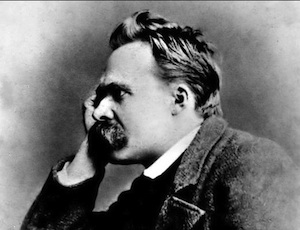 In the Genealogy of Morals, Friedrich Nietzsche makes an interesting observation about cultural elites and how a culture defines what is “good”:
In the Genealogy of Morals, Friedrich Nietzsche makes an interesting observation about cultural elites and how a culture defines what is “good”:
[T]he real homestead of the concept of “good” is sought and located in the wrong place: the judgement “good” did not originate among those to whom goodness was shown. Much rather has it has been the good themselves, that is, the aristocratic, the powerful, the high-stationed, the high-minded, who have felt that they themselves are good, and that their actions were good, that is to say of the first order, in contradistinction to all the low, the low-minded, the vulgar, and the plebeian. It was out of this pathos of distance that they first arrogated the right to create values for their own profit, and to coin the names of such values (italics his)
As frustrating as Nietzsche can be for many, his point here is helpful in understanding why it is that elites feel justified in using power and coercion to force those who are not as enlightened and advanced, in the opinion of the elites, to live according to the elite’s imaginings for human life. This is a basic orientation of the type of progressivism we see playing out in American politics today. Progressives see themselves as more enlightened than the rest of us and believe that it is within their right to exert power over the common person to conform us all to a progressive vision for society.
Progressive elites not only know what is best but they will always use power to implement programs to actualize their social visions. Back in 1920, Herbert Croly, a key apologist of progressivism that heavily influenced the New Deal policies of President Franklin D. Roosevelt’s administration, described it this way:
“Progressivism…is fundamentally the attempt to mould social life in the light of the best available knowledge and in the interest of a humane ideal. It lives by the definite formulation of convictions, by the initiation of specific programs and by the creation of opportunities to try them out. It is necessarily aggressive.”
Therefore, when a politician or religious person says that he or she is a “progressive” or attaches “progressive” as an adjective to their ideological and ecclesiastical commitments, you can predict what will follow: an aggressive series of programs designed to conform society to the most recent trending moral and social fad even though history has proven to us again and again much of what actually works. Progressives will then use the power of the state to “try certain things out” like reconstructing how families function, how businesses function, how governments function, what the content is that best educates children to be future innovators and problem solvers, how to keep the poor out of poverty, and so on. And when these experiments fail, like social security, public education in low-income areas, welfare, the creation of the Department of Education, and so on, we are left to pick up the pieces and the progressives who got us into these messes cannot be held accountable and are long gone.
Maybe the best societies, the most free societies, are those that believe in dignity, creativity, intelligence, imagination, and the potential of the “low-minded, the vulgar, and the plebian.” Maybe the best societies are those where leaders have the epistemic humility to confess that they do not know how to solve all the problems that plague a society and need to make decisions slowly as they weigh the long-term consequences. Maybe, in the end, what countries really need is not a group of elite progressives with aggressive programs to try out their visions but a decentralized political context for the common person to have the freedom to pursue human flourishing in reciprocal relationships of service with others in ways that foster solidarity and cooperation because we all are morally and intellectually limited. We used to call that “life, liberty, and the pursuit of happiness.”

